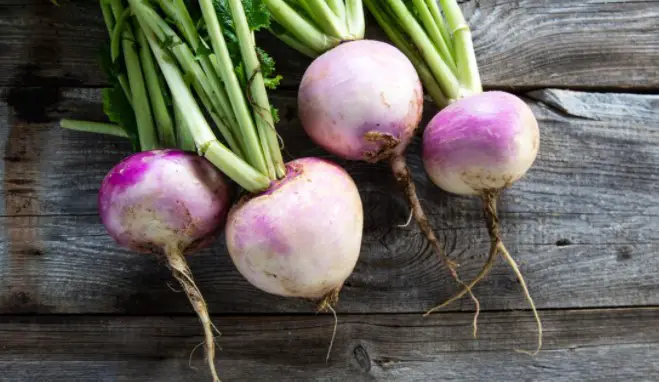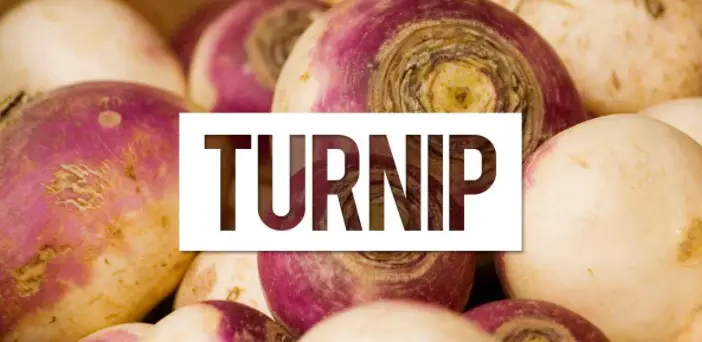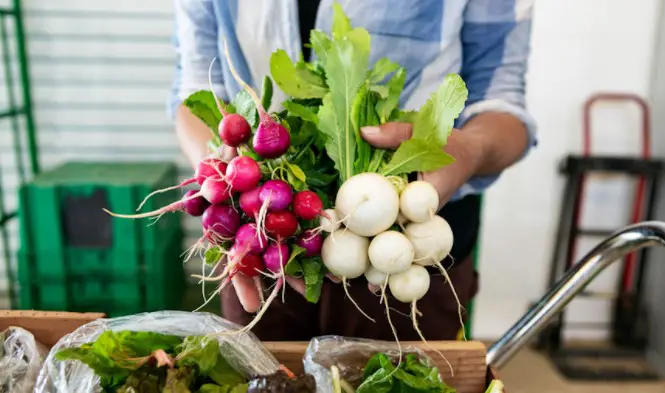Vegetables hardly cross your mind when you think of foods horses can eat; however, you must have wondered, in your quest to provide variety to your horses, can horses eat turnips? They are not just vegetables; they are root vegetables. Is it safe for your horses to eat anything other than grains and grasses?
Yes, turnips are a good choice of root vegetables for your equine because they are abundant in minerals and vitamins you will find in inadequate amounts in grains and grasses. The latter is usually a good source of macronutrients – proteins and carbohydrates. However, if you wish to meet up with the micronutrient demands of your horses, you need to feed them vegetables such as turnips.
As you continue to read this piece, you will find the numerous benefits of feeding turnips to your horses. You will also come across some amazing facts and how they can make tending and feeding your horses, with the right nutrients, easier and achievable.
What are Turnips?
If you’re not familiar with the name, but you’ve heard people talk about feeding their horses with turnips. You should know that it is a root vegetable, like sweet potatoes, only more succulent and whiter, and it belongs to a different taxonomic classification.

Turnips are grown in various sizes. The smaller and tender ones – suitable for human consumption – and the larger ones, grown specifically for livestock feed. Therefore, since there is already a demand for turnips among livestock, there is a high chance it is safe for your horses to feed on them.
Turnips are well adapted to temperate regions but can grow in different types of climate. Although caution has to be taken regarding the timing of planting as the root, which is what is economically and the most nutritionally important, can be affected by high temperatures.
Amazing Facts About Turnips
The fact that there are livestocks that eat turnips should assuage your fears concerning its safety for your horses. However, here are some facts about turnips that will convince you more of their safety and benefits to your horses.

Great Supplementary Nutrient Provider
Turnips are different from other staple livestock feed since they are not a primary energy source. Although the roots and leaves contain some amount of sugar, their starch content is not enough to supply the energy your horses need. However, it is abundant in minerals – calcium, magnesium, zinc, potassium, and iron – and vitamins B and C.
It creates a good nutrient balance for your horses when combined with their grains and hay.
Common feed among livestock
Turnips are a common feed among livestock, especially cattle. You may think that the digestive system of cattle is not the same as horses’, and you will be right. However, due to the water content of turnip, it is a good fit into the diet of your horses.
Horses require small portions of feed at a time, due to the small size of their stomach. Therefore, the feed has to be moved along, fast, in the digestive tract. Turnip helps make that happen while providing essential micronutrients.
It’s edible from leaves to root
Normally, when you hear the name of this vegetable, you immediately picture the white and sometimes, purple or green, bulbous fruit. However, it is not the only nutritious part of the plant. According to the nutrient composition of turnip, the leaves are as nutritious as the roots.
Giving your horses the whole plant, fresh from harvest, increases the number of nutrients they get, and consequently, the benefits they derive from consuming it.
Health Benefits of Turnips to your Horses
Having known these facts about turnips and the greatness they possess, how can they healthily benefit your horses? Do the nutrients they contain make the lives of your equine better or make no significant difference?

Easy digestion
Horses need to eat many meals throughout the day. This is made difficult because they have a small stomach, which means they need to digest whatever they eat fast, absorb the nutrients, and create space for new feed intake. While this seems like a plan, it exposes your horses to the possibility of overfeeding, which may make them unhealthy.
Turnip is abundant in water and fiber, which aids digestion and moves the food materials along faster in the digestive tract. When your horses eat, they feel full, and their digestive tract absorbs the nutrients in their feed effectively.
Better Muscular Regulation
Horses’ muscles are one of the exquisite sights to behold on them. The bulge and strain with every activity they do. However, with such strength and size, comes the need to fuel them and relax them adequately.
Different organs in the horses are made of muscles. The heart, for instance, needs to be in top condition. One of the ways to achieve that is an impressive supply of potassium, magnesium, and zinc, to make muscular contraction and relaxation easier and avoid cramps.
Improved and Stronger Immune System
Vitamins A, C, and E are important in keeping the immune system strong, to fight infections. Turnips are abundant in these vitamins. They are also abundant in folate, which helps to improve the quality of blood and oxygen transport, which influences the strength of the immune system.
Stronger Bones
Calcium and magnesium help to grow better and stronger bones. High bone density provides a good framework for muscles to attach. In younger horses, a good diet that contains an adequate amount of magnesium and calcium can help prevent arthritis in later years.
In older horses, it can make their arthritis easier.
In Conclusion
Turnip is one of the root vegetables that is safe for horses to consume. It is abundant in vitamins and minerals and does not compete with the energy sources that your horses feed on. Turnips help to aid digestion and increase the overall health of your equine due to their nutrient composition.
However, give your horses moderate servings of turnip, to balance their nutritional requirement.
